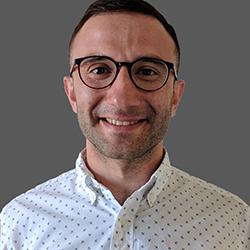Research background
Dr Farhad Huseynov is a Senior Research Associate at the University of Cambridge. His research interests lie in the Structural Health Monitoring (SHM) of bridges. During his PhD studies at the University College Dublin, he developed a technique using accelerometers that can measure rotations, generated by pendulum behaviour caused by gravity, with microradians accuracy. This achievement is by far the most accurate rotation measurements available in the literature and has the potential to become a landmark finding in the bridge SHM field. He has also developed an effective bridge condition assessment methodology that can identify defects in bridges using direct rotation measurements. The method has been successfully validated on a full-scale railway bridge. It is one of the first successful demonstrations of a damage detection application on a real bridge.
Before joining Cambridge University, Farhad had worked as a senior bridge engineer in several industry-leading consultancy companies. He has worked on a wide range of projects including, but not limited to, medium-and long-span bridge design works and testing some of the iconic bridges in the UK such as the Queensferry Crossing.
CDBB projects involved with
Staffordshire Bridges - Long Term Performance Monitoring using Fibre-Optic Sensors
Research ambitions for CDBB
Farhad is leading a research project undertaken in collaboration with Network Rail and Microsoft, which is aiming to quantify the performance of bridges using digital twins. In this research project, he is aiming to showcase the practical application of real-time data analytics integrated with digital twins in efforts to provide useful insights to bridge owners about the performance of their bridge assets and help them in better maintaining their transport networks.

